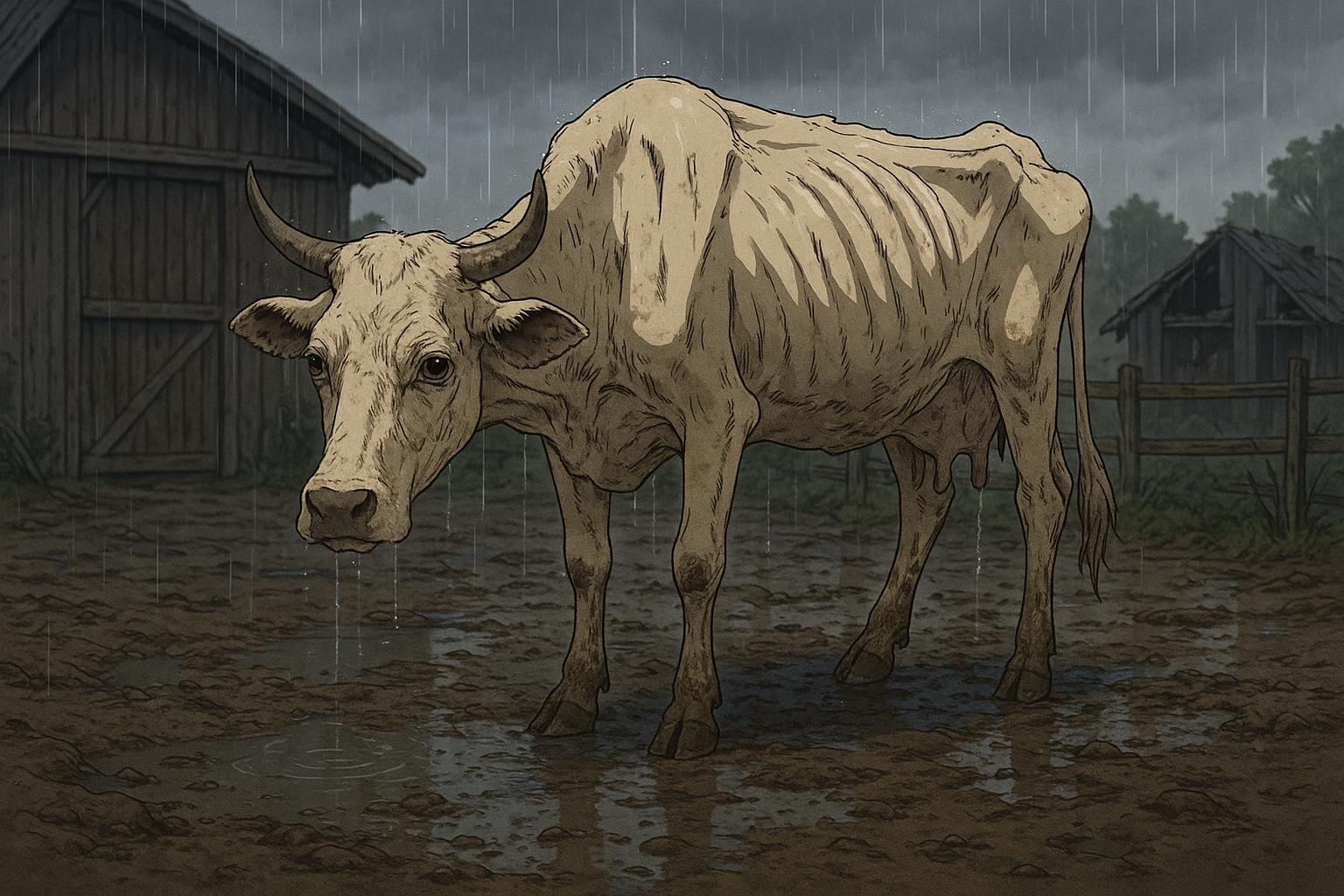A farmer from Riddlesden, Yorkshire, has been permanently banned from keeping animals following a distressing case of neglect involving his herd of 45 cows. Malcolm Mosley, 62, was found guilty of nine charges related to animal cruelty, leading Bradford Crown Court to describe the conditions at his Primrose Farm as the worst ever seen by council officers. Inspections revealed the disturbing reality of the farm, including a cow dead and submerged in mud, malnourished animals, and inadequate access to food and water.
The neglect came to light after a series of inspections initiated by Bradford Council in September 2022. Over six months, inspectors encountered dire conditions: cows were found in a state of suffering, one with a broken leg and another with an ingrowing horn that had pierced its skin. Many animals were housed without bedding or proper water access, forcing the council to intervene. Prosecutor Clare Walsh highlighted Mosley’s refusal to comply with improvement notices and his decision to euthanise some cows rather than seek veterinary care. Despite showing “deep regret,” Mosley was ultimately sentenced to a 12-month community order requiring him to complete 300 hours of unpaid work.
Mosley’s situation is part of a troubling trend in animal welfare across the UK. An investigation by the RSPCA reveals a significant increase in cases of neglect and abandonment, with reports rising by 25% in just one year. This surge is particularly concerning during periods of heightened pressure, such as the festive season, when many pet owners face financial constraints. In 2024 alone, the RSPCA recorded a staggering 48,814 incidents of animal neglect in the first nine months, a statistic that underscores the pressing need for more robust oversight in animal welfare.
This case not only reflects individual failure but also hints at systemic issues within the industry. George Monbiot, writing for a national publication, critiques the RSPCA's Assured scheme, which is intended to certify humane treatment on farms but has been marred by revelations of legal breaches and poor animal welfare practices. These findings call into question the efficacy of current animal welfare certifications in preventing cruelty and the broader implications for intensive farming practices.
Moreover, instances of animal cruelty have been documented in various locations across the UK, amplifying concerns about the treatment of livestock and domesticated animals alike. For example, undercover investigations have exposed horrific scenes on dairy farms, where workers were seen violently abusing animals, while cases involving dogs and cats in squalid conditions further highlight the vulnerability of animals under human care.
The lack of effective welfare enforcement and the apparent prevalence of neglect raise critical questions about the future of animal husbandry in the UK. While Malcolm Mosley’s case has drawn significant media attention, it is representative of broader issues within farming practices, regulatory oversight, and animal welfare advocacy that warrant urgent address. Steps must be taken to ensure that all animals receive the care and protection they deserve, necessitating a comprehensive reevaluation of how we approach and monitor animal welfare standards across the country.
Reference Map
- 1
- 2
- 3
- 4
- 5
- 6
- 7
Source: Noah Wire Services
